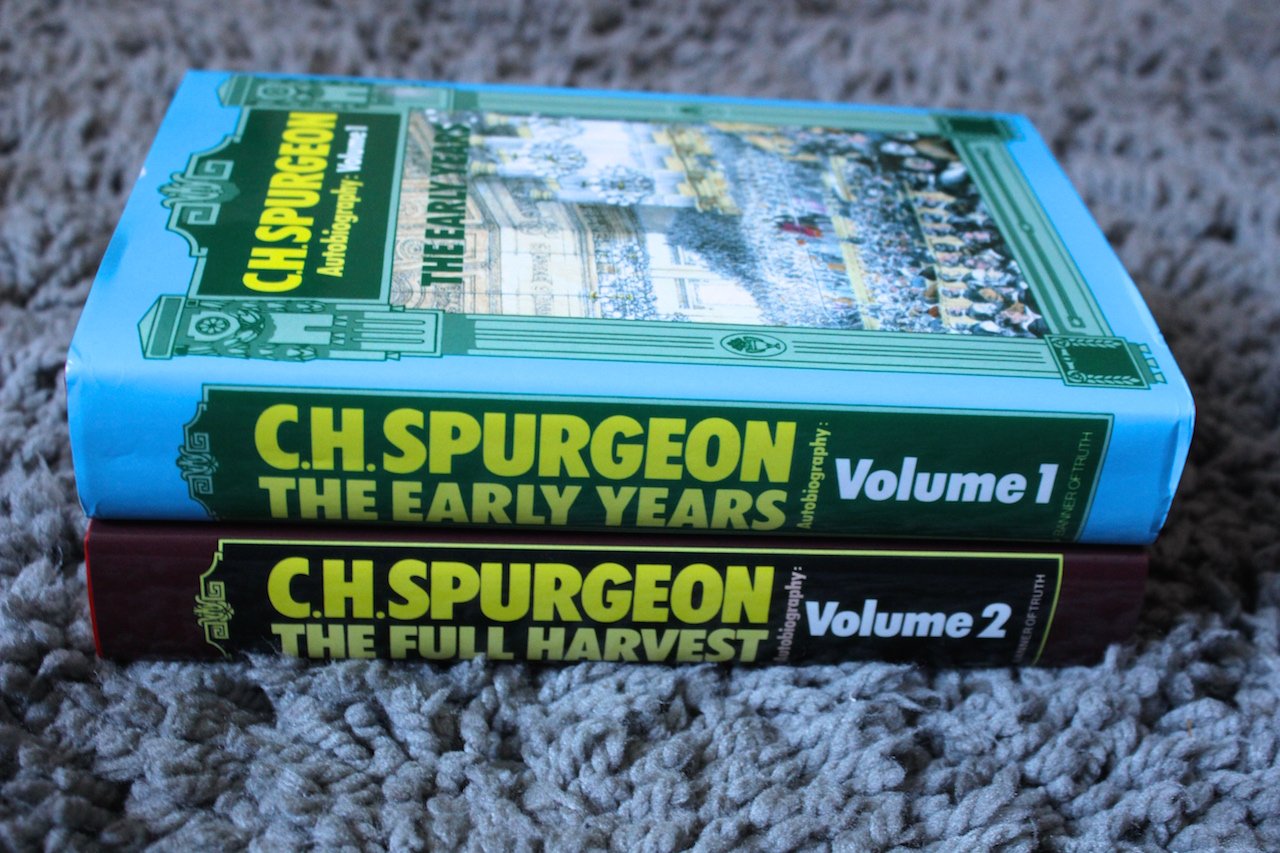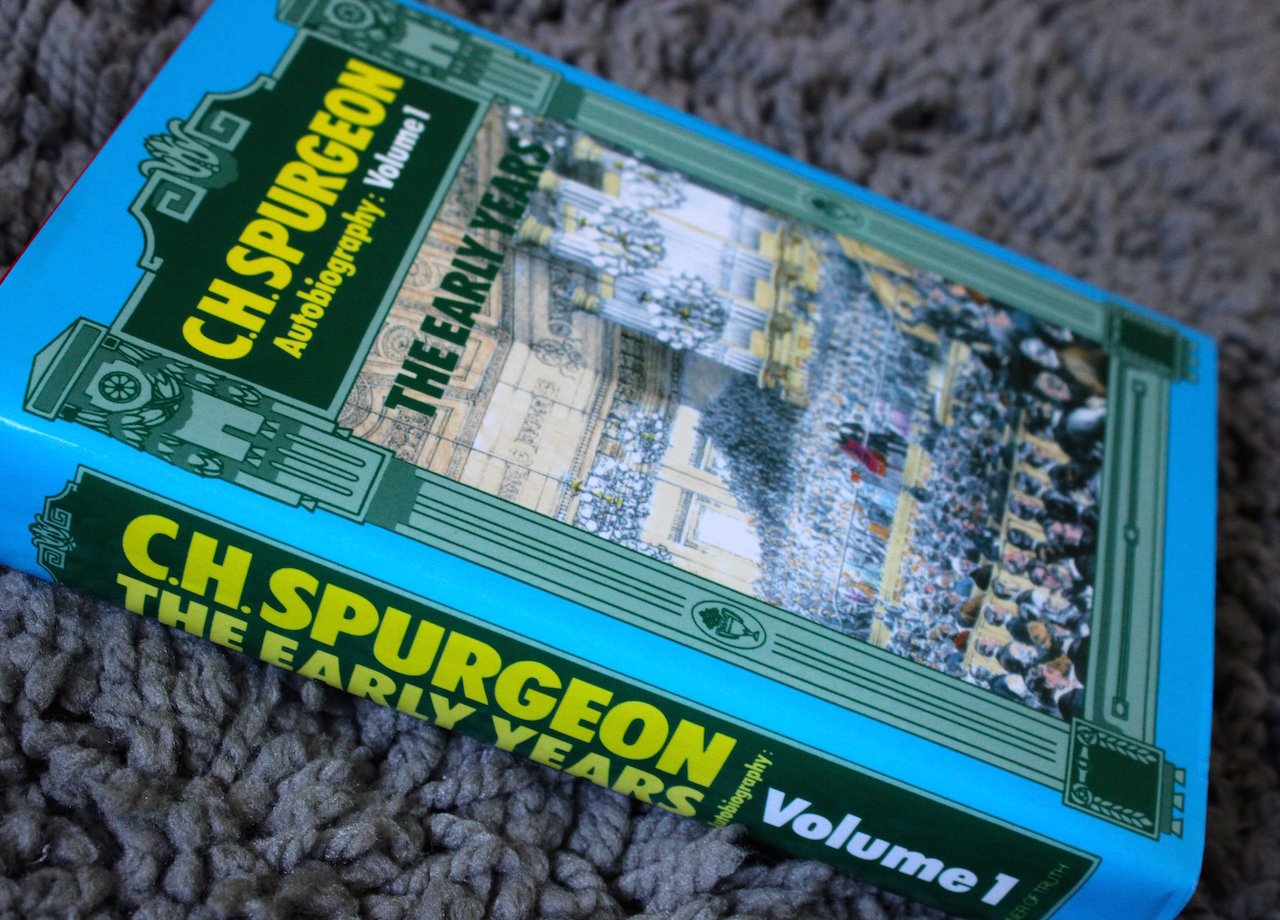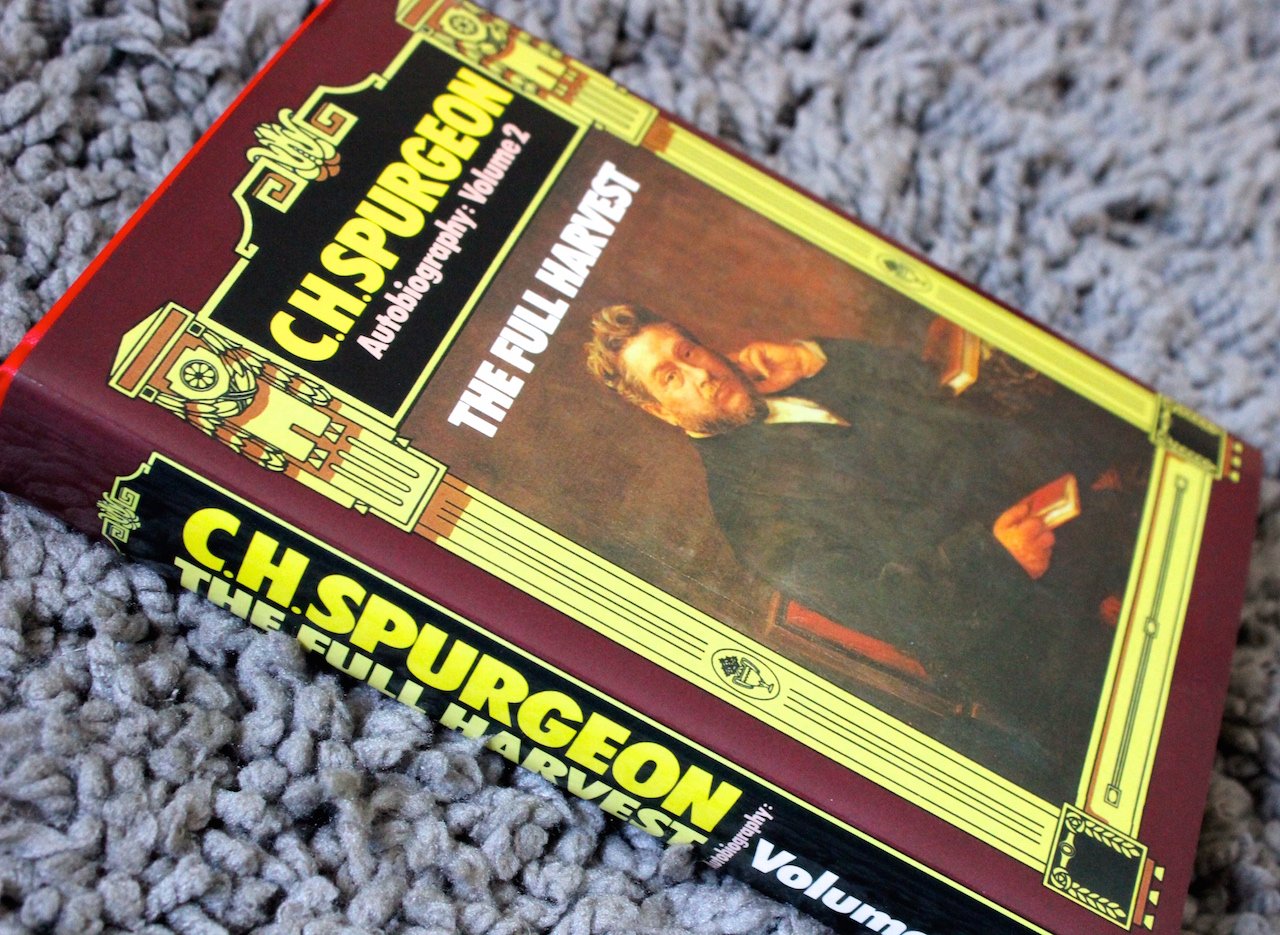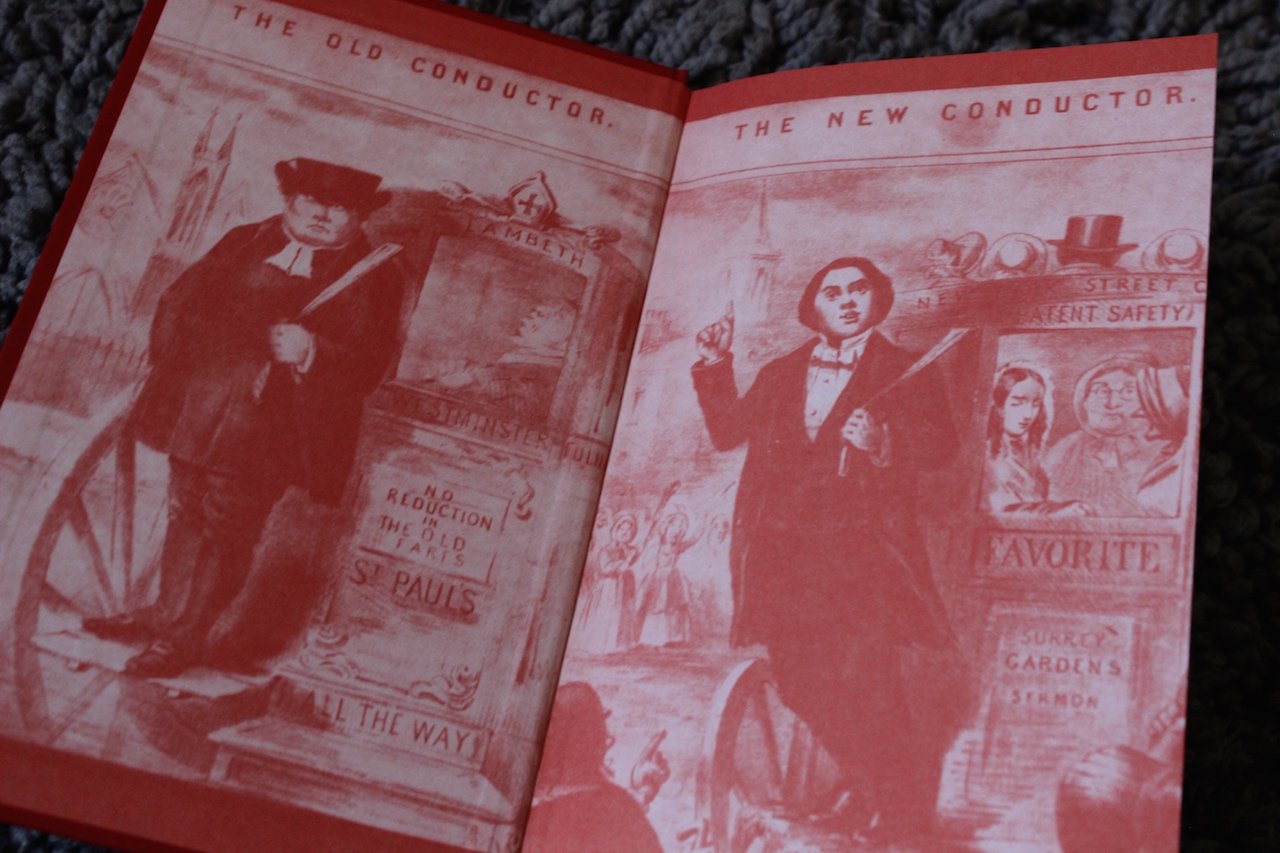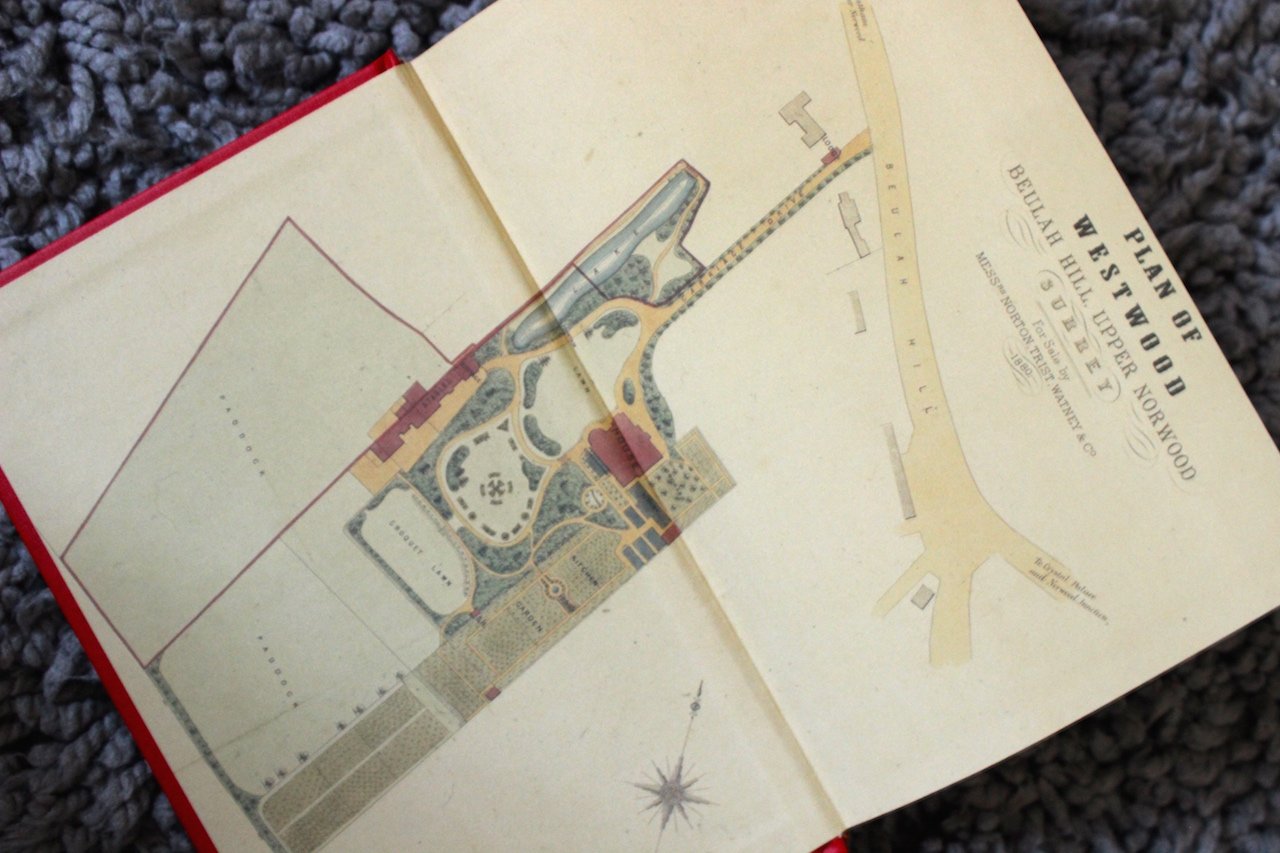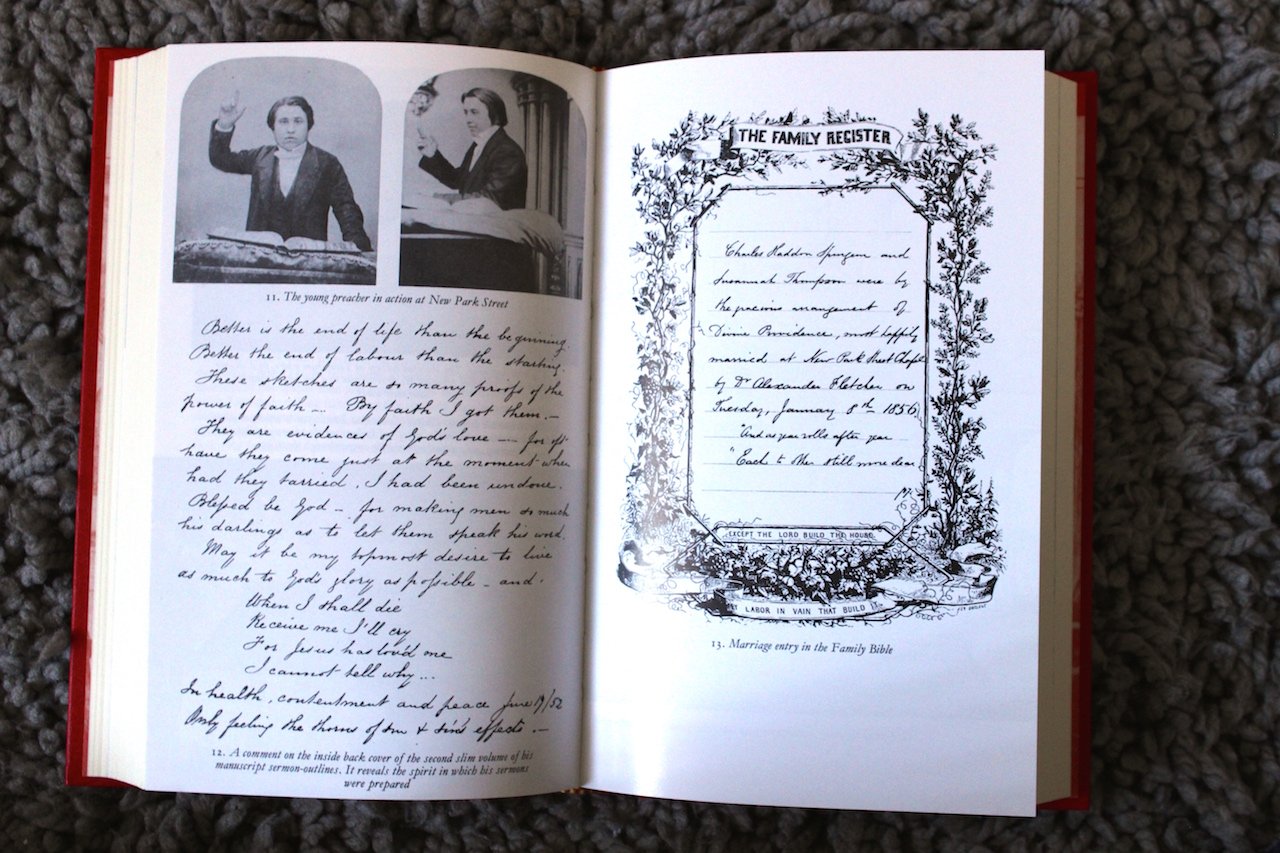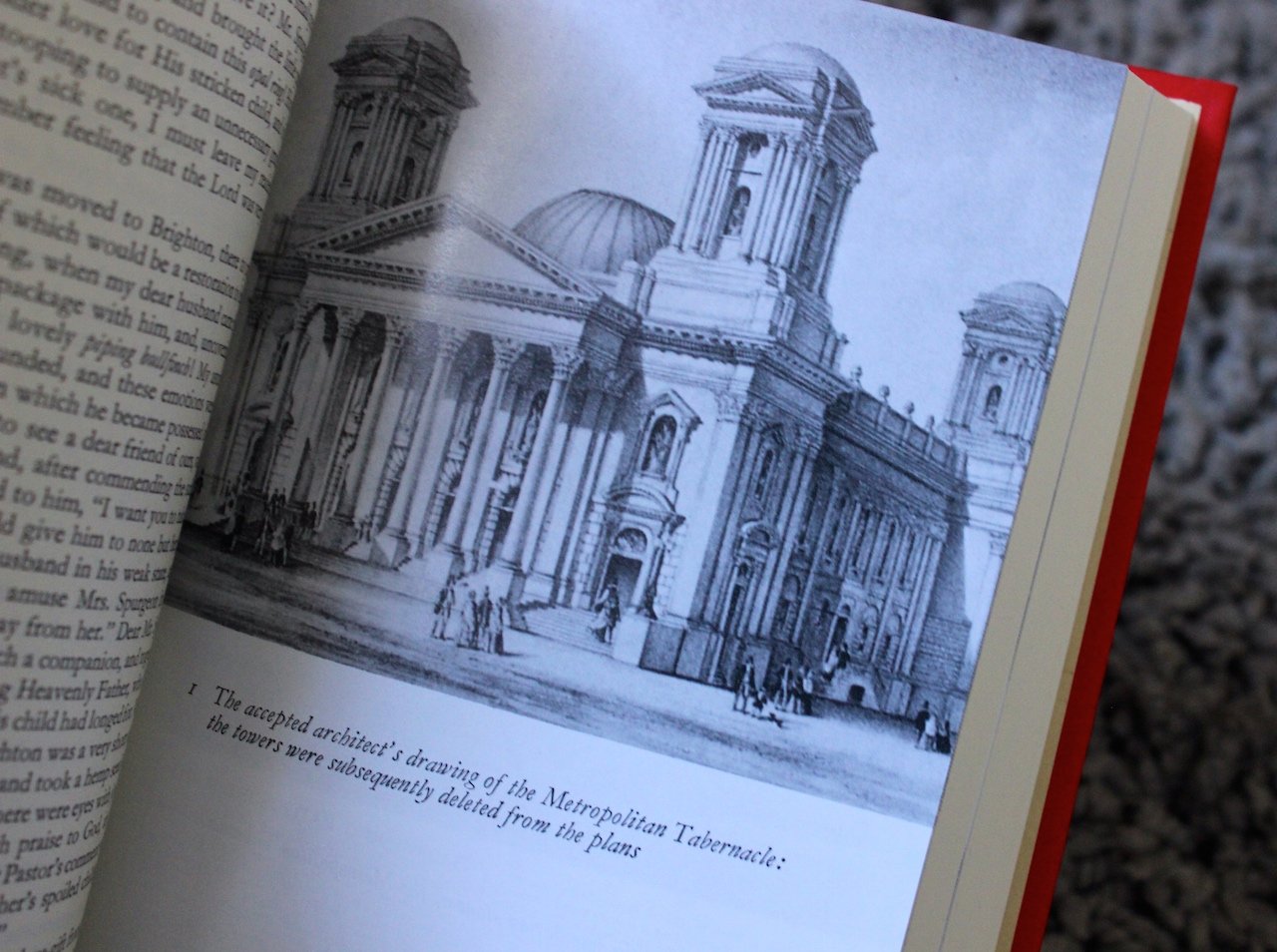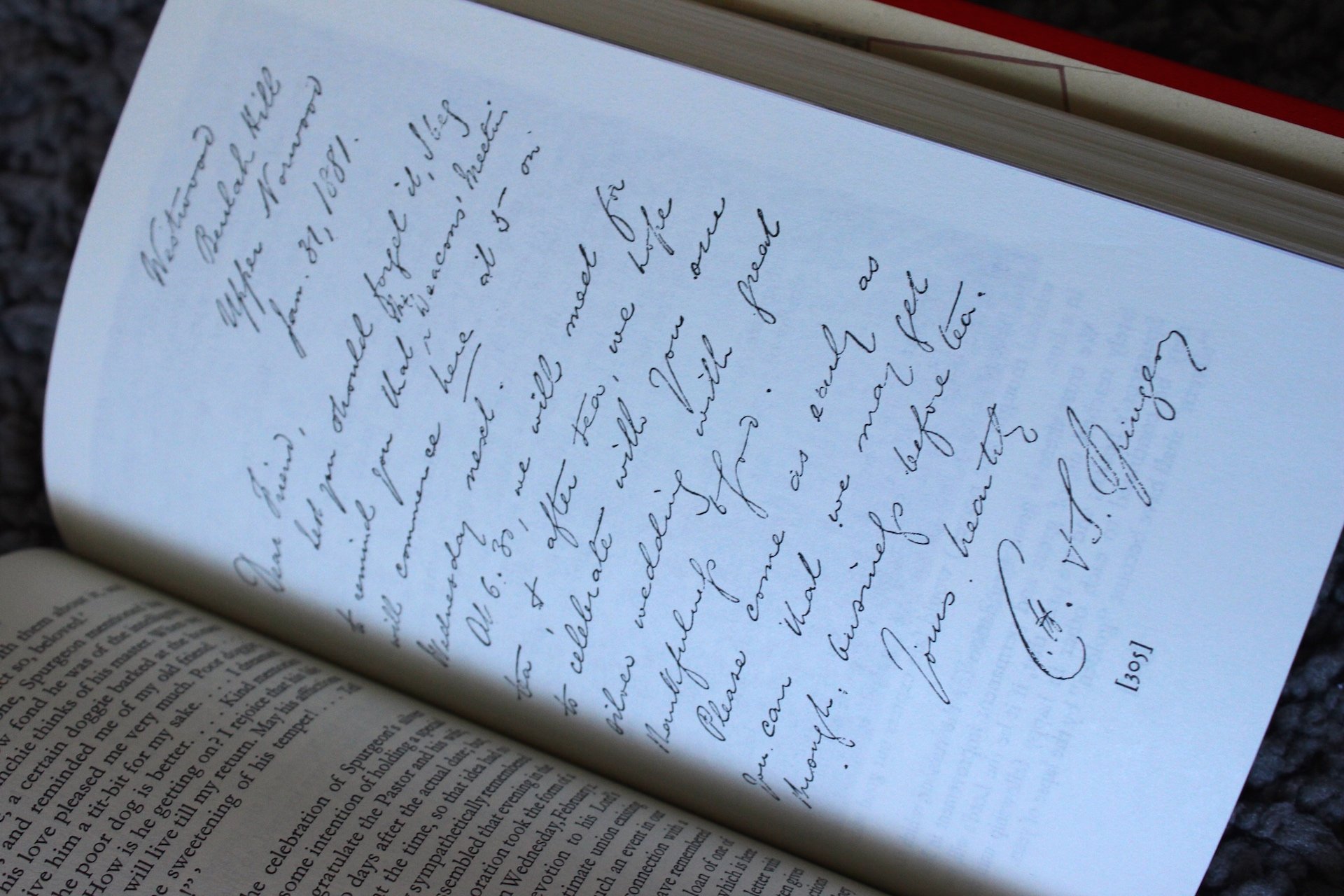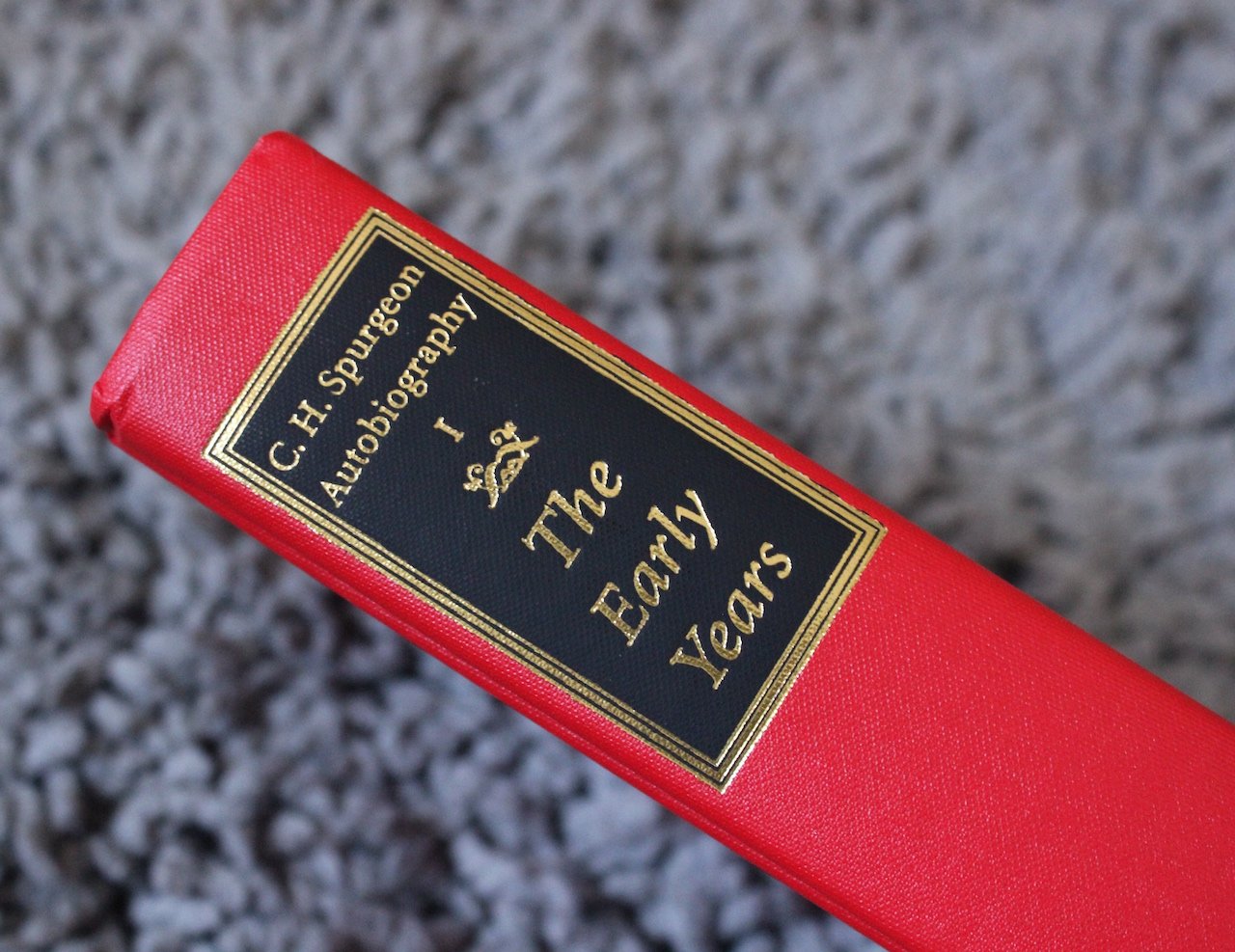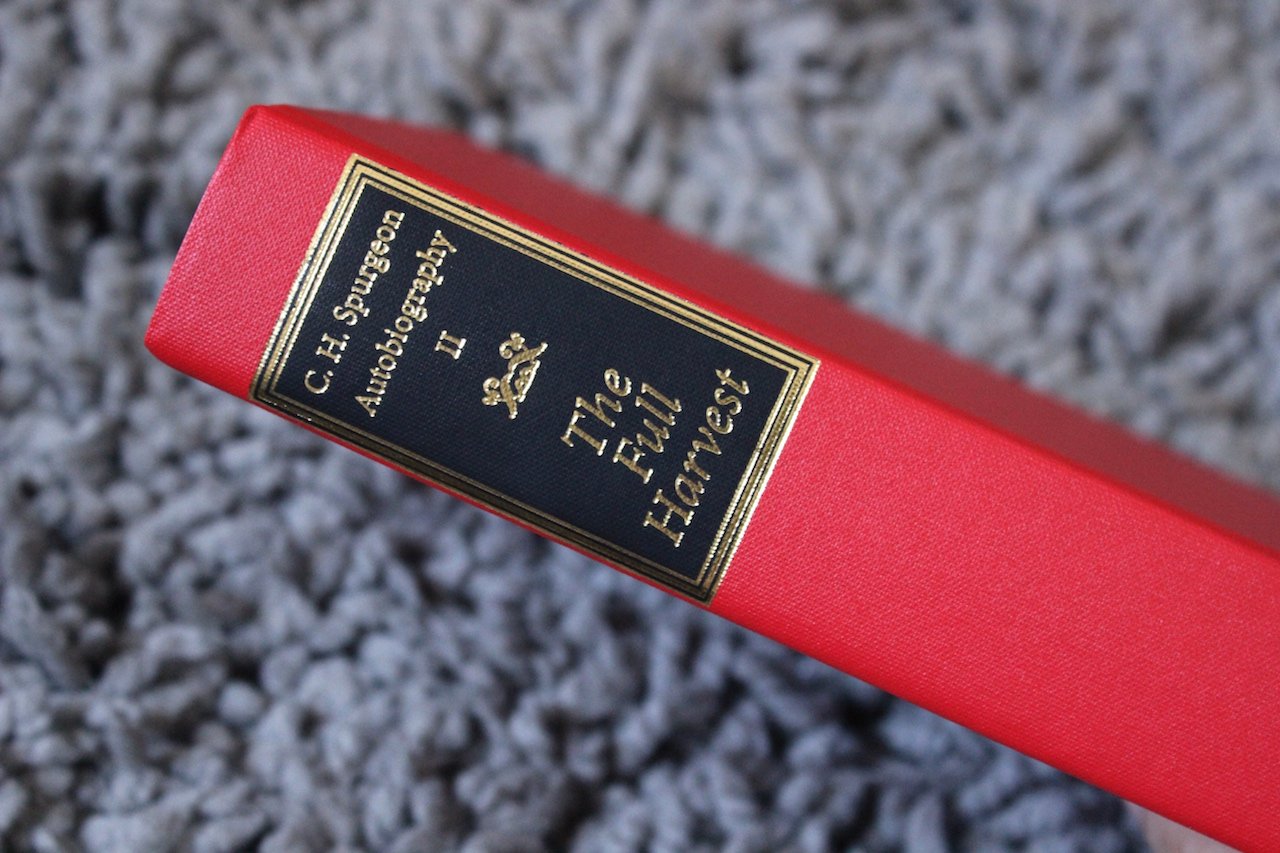C.H. Spurgeon Autobiography Volume 1&2
Charles Haddon Spurgeon, the prince of preachers, has become very popular in recent years amongst the young Reformed crowd. Some in this group like Spurgeon mainly because he had a manly beard and smoked cigars "to the glory of God." But this isn't all Spurgeon has to offer.In comparison to everything else Spurgeon has contributed, these are small and trivial things.
In this two-volume autobiography (well sort of autobiography since his wife helped finish it) from Banner of Truth we learn a lot more about this man.
Why read such a long biography?
Because this one is worth it. I started some of Volume 1 in the mornings before I went to work and I would spend a lot of time thinking throughout the day about what I had read and wondered how the story ended. We have a lot to learn from Spurgeon, but in this review I will just give my top 3 takeaways.
Challenging:
One of the things that really impacted me was the childhood of Spurgeon. He talks much about the details of his early years and could recollect much of his questioning and experiences. It made me think about my childhood and how a lot of wonder was lost by the digital age. While Spurgeon was wandering through the fields of Stambourne in his early years, I remember playing video games and eating McDonalds. What happened to wonder and curiosity?
Spurgeon gives great reflection on his youth when he was a curious little boy growing up in Stambourne,
"I remember well, in my early days, seeing upon my grandmother's mantel-shelf an apple contained in a phial. This was a great wonder to me, and I tried to investigate it. My question was, "flow came the apple to get inside so small a bottle?" The apple was quite as big round as the phial; by what means was it placed within it? Though it was treason to touch the treasures on the mantel-piece, I took down the bottle, and convinced my youthful mind that the apple never passed through its neck, and by means of an attempt to unscrew the bottom, I became equally certain that the apple did not enter from below. I held to the notion that by some occult means the bottle had been made in two pieces, and afterwards united in so careful a manner that no trace of the join remained. I was hardly satisfied with the theory, but as no philosopher was at hand to suggest any other hypothesis, I let the matter rest. One day, the next summer, I chanced to see upon a bough another phial, the first cousin of my old friend, within which was growing a little apple which had been passed through the neck of the bottle while it was extremely small. "Nature well known, no prodigies remain." The grand secret was out. I did not cry, "Eureka! Eureka!" but I might have done so if I had then been versed in the Greek tongue."
Witty:
Spurgeon was funny. He was very serious when it came to the things of God but also had a humorous side.
Here’s one of Spurgeon’s witty stories:
"'A lady and gentleman were engaged to be married; they were walking along the sea-shore, when some dispute arose, and the lady, in a fit of temper, snatched the engagement ring from her finger, and threw it into the water. After a while, she found another lover, to whom she was married, and they went down to Scarborough to spend the honeymoon. On the first morning, they had fish for breakfast; and, as the bridegroom was dividing it, he felt something hard; what do you suppose the knife had cut against? Of course, the judges, like everybody else, exclaimed, 'The ring.' 'No,' said Spurgeon, 'it was only a bone!'"
One of Spurgeon's students, W. D. McKinney, who later became a pastor at Ansonia, Connecticut, U.S.A. writes about when Spurgeon addresses some of the students at the Pastor's College,
"Soon, the floods of his pent-up wisdom poured forth; the flashes of his inimitable wit lit up every face, and his pathos brought tears to all eyes. It was an epoch in student-life to hear him deliver his Lectures to my Students. What weighty and wise discourse he gave us on the subject of preaching! How gently he corrected faults, and encouraged genuine diffidence! What withering sarcasm for all fops and pretenders! Then came those wonderful imitations of the dear brethren's peculiar mannerisms: one with the hot dumpling in his mouth, trying to speak; another, sweeping his hand up and down from nose to knee; a third, with his hands under his coat-tails, making the figure of a water-wagtail. Then the one with his thumbs in the armholes of his waistcoat, showing the "penguin" style of oratory. By this means, he held the mirror before us so that we could see our faults, yet all the while we mere almost convulsed with laughter. He administered the medicine in effervescing draughts."
Christ-Centered:
Most importantly what you will see in this book is that Spurgeon and every ministry he had was Christ-centered. He is known to have said, “Whatever subject I preach, I do not stop until I reach the Savior, The Lord Jesus, for in Him are all things.” This is the influence we need, this is what we need to learn from Spurgeon. You can like the beard, you can like the fact that he smoked cigars, but that’s not what made Spurgeon who he was. It was Christ!
Spurgeon writes on preaching:
"Whatever may have been the feelings of my hearers, I can honestly say that scores, and, indeed, hundreds of times I have gone from my pulpit groaning because I could not preach as I wished; but this has been my comfort, "Well, I did desire to glorify Christ, I did try to clear my conscience of the blood of all men, I did seek to tell them the whole truth, whether they liked it or not." It will be an awful thing for any man, who has been professedly a minister of Christ, and yet has not preached the gospel, to go before the bar of God, and to answer for the souls committed to him. That ancient message still needs to be heard: "If the watchman see the sword come, and blow not the trumpet, and the people be not warned; if the sword come, and take any person from among them, he is taken away in his iniquity, but his blood will I require at the watchman's hand." This it is that makes our work so weighty that our knees sometimes knock together when we are thinking of going up to our pulpit again. It is no child's play, if there is to be a judgment, and we are to answer for our faithfulness or unfaithfulness. What must be our account if we are not true to God and to man? I have prayed, many a time, that I might be able, at the end of my ministry, to say what George Fox, the Quaker, said when he was dying, "I am clear, I am clear.""
The construction of these books is great. They are made to last. Normally I tend to get rid of dust jacketsbecause they get in my way but I will keep these ones since I do not like the design of the badge on the binding. The red color does look great, but I am not a fan of the badge.
You can get these two volumes at Amazon for a great price!

